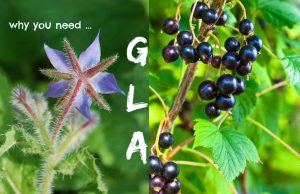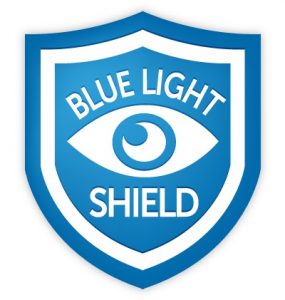Reasons Your Eyesight Isn’t Going To Get Any Better…Unless You Use These Essential Eye Health Nutrients
Eye health nutrients are plentiful and very effective if properly used. Your eyesight is probably the most important of your five senses.
 Eye health goes hand-in-hand with general health.
Eye health goes hand-in-hand with general health.
But a few nutrients are especially important for your eyes.
These nutrients help maintain eye function, protect your eyes against harmful light, and reduce the development of age-related degenerative diseases.
Here are 8 nutrients that benefit your eyes.
Overview of Common Eye Diseases
Your risk of developing an eye disease increases as you get older. The most common eye diseases include:
- Cataracts. A condition in which your eyes become clouded. Age-related cataracts are a leading cause of vision impairment and blindness around the world.
- Diabetic retinopathy. Associated with diabetes and a major cause of visual impairment and blindness, retinopathy develops when high blood sugar levels damage the blood vessels in your retina.
- Dry eye disease. A condition marked by insufficient tear fluid, which causes your eyes to dry up and leads to discomfort and potential visual problems.
- Glaucoma. A group of diseases characterized by progressive degeneration of your optic nerve, which transfers visual information from eyes to brain. Glaucoma may cause poor eyesight or blindness.
- Macular degeneration. The macula is the central part of your retina. Age-related macular degeneration (AMD) is one of the main causes of blindness in developed countries.
Although your risk of getting these conditions depends to some extent on your genes, your diet may also play a major role.
Eye Health Nutrients – Vitamin A
 Vitamin A deficiency is one of the most common causes of blindness in the world
Vitamin A deficiency is one of the most common causes of blindness in the world
This vitamin is essential for maintaining your eyes’ light-sensing cells, also known as photo receptors.
If you don’t consume enough vitamin A, you may experience night blindness, dry eyes, or even more serious conditions, depending on the severity of your deficiency
Vitamin A is only found in animal-derived foods. The richest dietary sources include liver, egg yolks, and dairy products.
However, you can also get vitamin A from antioxidant plant compounds called pro-vitamin A carotenoids. This compound is found in high amounts in some fruits and vegetables.
Pro-vitamin A carotenoids provide around 30% of people’s vitamin A requirements, on average. The most efficient of them is beta-carotene, which is found in high amounts in kale, spinach, and carrots
Eye Health Nutrients – Lutein and Zeaxanthin
 Lutein and zeaxanthin are yellow carotenoid antioxidants known as macular pigments.
Lutein and zeaxanthin are yellow carotenoid antioxidants known as macular pigments.
They are concentrated in the macula, the central part of your retina, which is a layer of light-sensitive cells on the back wall of your eyeball.
Lutein and zeaxanthin function as a natural sunblock.
They’re thought to play a central role in protecting your eyes against harmful blue light
Controlled studies show that intake of lutein and zeaxanthin is proportional to their levels in your retina
One observational study in middle-aged and older adults noted that consuming 6 mg of lutein and/or zeaxanthin per day significantly reduced the risk of AMD.
The researchers also discovered that those with the highest intake of lutein and zeaxanthin had a 43% lower risk of macular degeneration, compared to those with the lowest intake
However, the evidence is not entirely consistent. One meta-analysis of six observational studies suggests that lutein and zeaxanthin only protect against late-stage AMD — not its early development stages
Lutein and zeaxanthin usually occur together in foods. Spinach, swiss chard, kale, parsley, pistachios, and green peas are among the best sources
What’s more, egg yolks, sweet corn, and red grapes may also be high in lutein and zeaxanthin
In fact, egg yolks are considered one of the best sources due to their high fat content. Carotenoids are better absorbed when eaten with fat, so it’s best to add some avocado or healthy oils to your leafy vegetable salad
Eye Health Nutrients – Omega-3 Fatty Acids
 The long-chain omega-3 fatty acids EPA and DHA are important for eye health.
The long-chain omega-3 fatty acids EPA and DHA are important for eye health.
DHA is found in high amounts in your retina, where it may help maintain eye function. It’s also important for brain and eye development during infancy. Thus, DHA deficiency can impair vision, especially in children.
Evidence also shows that taking omega-3 supplements may benefit those with dry eye disease
One study in people with dry eyes revealed that taking EPA and DHA supplements daily for three months significantly reduced dry eye symptoms by increasing the formation of tear fluid.
Omega-3 fatty acids may also help prevent other eye diseases. A study in middle-aged and older adults with diabetes found that taking at least 500 mg of long-chain omega-3s daily may reduce the risk of diabetic retinopathy.
In contrast, omega-3 fatty acids are not an effective treatment for AMD.
The best dietary source of EPA and DHA is oily fish. Additionally, omega-3 supplements coming from fish or microalgae are widely available.
Eye Health Nutrients – Gamma-Linolenic Acid
 Gamma-linolenic acid (GLA) is an omega-6 fatty acid available in small amounts in the modern diet.
Gamma-linolenic acid (GLA) is an omega-6 fatty acid available in small amounts in the modern diet.
Unlike many other omega-6 fatty acids, GLA appears to have anti-inflammatory
The richest sources of GLA are evening primrose oil and star flower oil.
Some evidence suggests that taking evening primrose oil may reduce the symptoms of dry eye disease.
One randomized controlled study gave women with dry eyes a daily dose of evening primrose oil with 300 mg of GLA. The study noted that their symptoms improved over a 6-month period.
Eye Health Nutrients – Vitamin C

Your eyes require high amounts of antioxidants — more so than many other organs.
The antioxidant vitamin C is especially important, although controlled studies on its role in eye health are lacking.
The concentration of vitamin C is higher in the aqueous humor of the eye than in any other body fluid. The aqueous humor is the liquid that fills the outermost part of your eye.
The levels of vitamin C in the aqueous humor are directly proportional to its dietary intake. In other words, you can increase its concentration by taking supplements or eating foods rich in vitamin C.
Observational studies show that people with cataracts tend to have a low antioxidant status. They also indicate that people who take vitamin C supplements are less likely to get cataracts.
While vitamin C plays a protective role in your eyes, it’s unclear whether supplements provide added benefits for those who aren’t deficient.
High amounts of vitamin C are available in many fruits and vegetables, including bell peppers, citrus fruits, guavas, kale, and broccoli.
Eye Health Nutrients – Vitamin E
 Vitamin E is a group of fat-soluble antioxidants that protect fatty acids from harmful oxidation.
Vitamin E is a group of fat-soluble antioxidants that protect fatty acids from harmful oxidation.
Since your retina has a high concentration of fatty acids, adequate vitamin E intake is important for optimal eye health.
Although severe vitamin E deficiency may lead to retinal degeneration and blindness, it’s unclear whether supplements provide any additional benefits if you’re already getting enough from your diet.
One analysis suggests that consuming more than 7 mg of vitamin E daily reduces your risk of age-related cataracts by 6%.
In contrast, randomized controlled studies indicate that vitamin E supplements do not slow or prevent the progression of cataracts.
The best dietary sources of vitamin E include almonds, sunflower seeds, and vegetable oils like flax seed oil.
Eye Health Nutrients – Zinc
 Your eyes contain high levels of zinc.
Your eyes contain high levels of zinc.
Zinc is a part of many essential enzymes, including super-oxide dismutase, which functions as an antioxidant.
It also appears to participate in the formation of visual pigments in your retina. For this reason, zinc deficiency may lead to night blindness.
In one study, older adults with early macular degeneration took zinc supplements. Their macular deterioration slowed, and they maintained their visual sharpness better than those who received a placebo.
However, further studies are paramount before strong conclusions can be reached.
Natural dietary sources of zinc include oysters, meat, pumpkin seeds, and peanuts.
The Bottom Line

Healthy lifestyle habits, such as a wholesome diet and regular exercise, may help prevent many chronic diseases — including eye conditions.
This risk will shrink substantially when you get enough of the nutrients listed above. Other vitamins may also play a role in eye health.
However, don’t neglect the rest of your body. A diet that keeps your whole body healthy will likely keep your eyes healthy, too.
 Another major factor to put into the equation is the excessive use of digital devices that is silently and relentlessly stealing our eye health.
Another major factor to put into the equation is the excessive use of digital devices that is silently and relentlessly stealing our eye health.
If you think you’ve been using your digital devices more and more, you’re probably right—and you’re not alone.
According to the Vision Council, more than 83 percent of Americans report using digital devices for more than two hours per day. And over 53 percent report using two digital devices simultaneously, with more than 60 percent experiencing symptoms of eye strain.
And what’s more worrying is that similar statistics have been noted in most of the industrialized countries worldwide.
With numbers like that it’s no surprise that supporting eye health is rapidly becoming a major concern for people of all ages.
But There Is A Solution…
 …one that’s helping beat back a world now bombarding us with some of the negative effects of blue light exposure and oxidative stress.
…one that’s helping beat back a world now bombarding us with some of the negative effects of blue light exposure and oxidative stress.
The solution is lutein but…
…as we have seen earlier in this article it’s not just any lutein, it also needs zeaxanthin within the formula.
These are some of the most beneficial ingredients to support eye health. Especially when it comes to shielding them from high-energy blue light exposure and supporting the health of your macular pigment.
When it comes to the kind and type of lutein, the difference is critical.
That is why for many years we have held in stock a unique natural eye support supplement that besides unrivaled eye health support.
It Provides A Certified Transfer Factor Formula That Educates Your Immune Cells At The Same Time
This is our customers preferred form of lutein and zeaxanthin.
One major reason is that unlike generic lutein included in most eye supplements. This solution is backed by multiple, ground breaking clinical studies and real life testimonials.
This kind of clinical validation cannot be ignored.
With the addition of the super anti-oxidant astaxanthin, other peptides from cow colostrum and naturally derived extracts, this remarkable SOLUTION should be on the mind of anyone looking for premium eye care.
Supplementation with this ground breaking natural solution resulted in significant reductions in occasional headache frequency, eye strain, eye fatigue, contrast sensitivity, disability glare, photo-stress reactivity, improved MPOD and sleep quality.
Besides helping filter blue light in the eye, this powerful combination is helping thousands to improve visual performance by absorbing bright light, helping to see clearly in bright environments, and helping to reduce eye fatigue and eye strain due to digital device usage and exposure.
It’s also helping with recovery from bright light or when moving from a brighter to dimmer environment.
This solution is part of our customers premiere choice for eye health formulas, and judging from the success we are experiencing, it’s here to stay for a mighty long time.